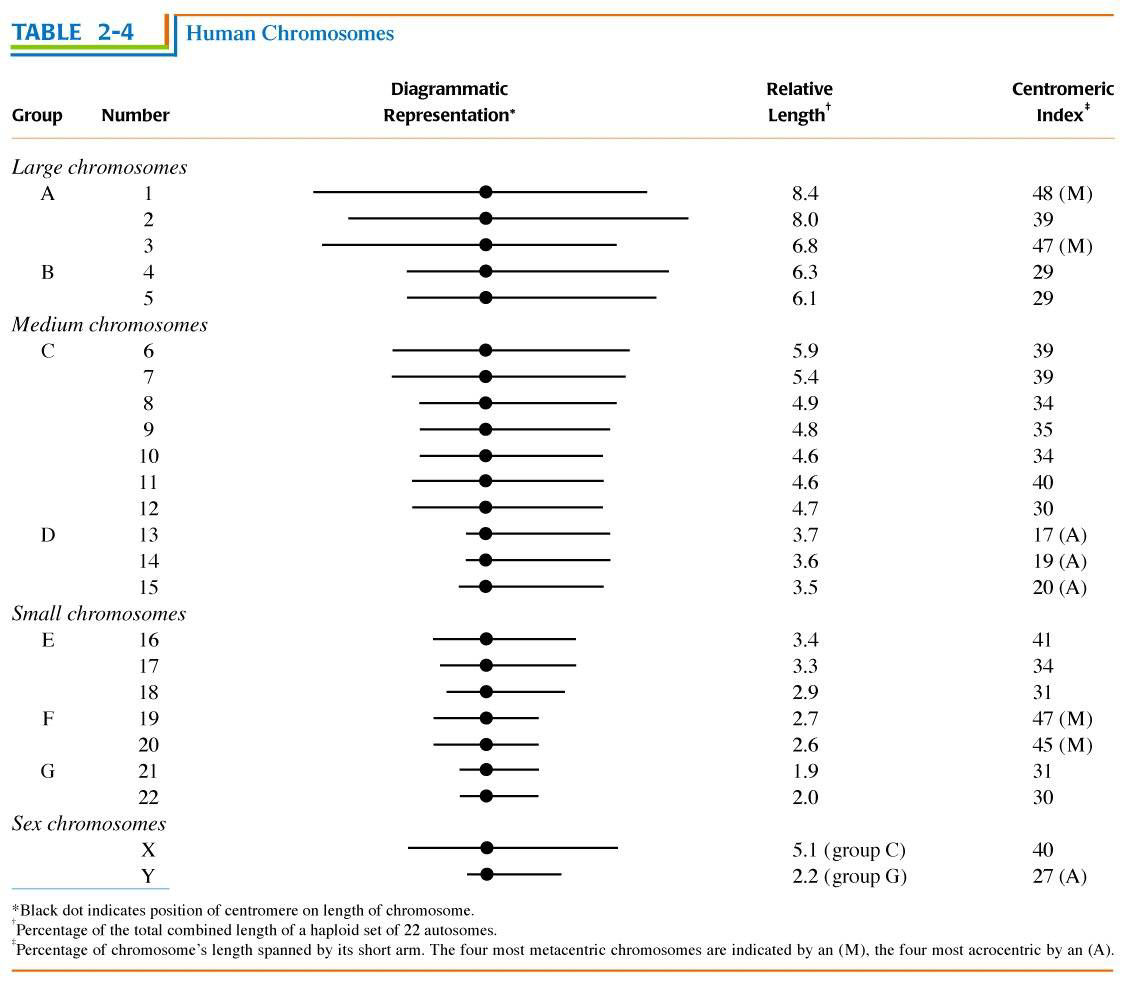
Idiographs of human chromosomes (n = 22 + X/Y)
The human karyotype comprises 2n = 46 chromosomes. This number was not
established until
1952: older textbooks often give it as 2n=48. Chromosomes are
classified into seven
groups, based on size and relative placement of the
centromere
(centromeric index).
"Small," "medium," and "large" chromosomes are
described as metacentric, acrocentric,
and/or telocentric, based on occurrence of the
centromere near the middle, towards the end, or at the end,
respectively. The division into categories are arbitrary:
the seven groups are those that originally could not be
distinguished from other of similar size and shape. There
are 22 pairs of autosomes that
are identical in both sexes. The two types of sex
chromosomes, X
and Y, are assigned
to the C and G groups, respectively.
Human females are 2N=46,
XX, males are 2n=46,
XY. The classic cytogenetic test for gender is the
number of small G-group chromosomes,
either 4 in females
or 5 in males.